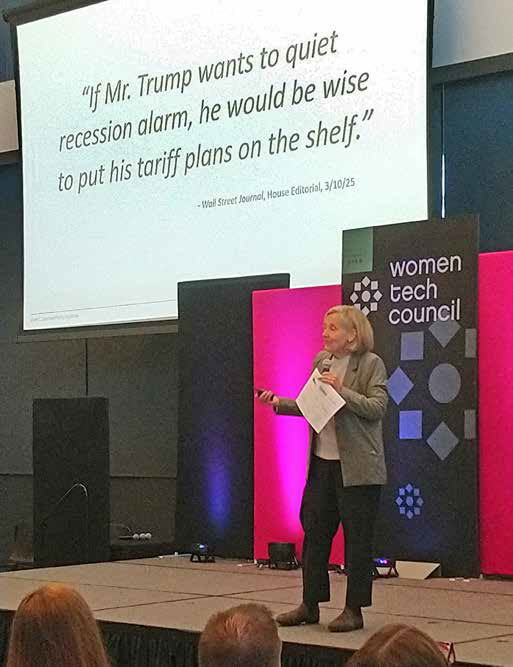By Brice Wallace
While Utah’s economic engine continues to roll along, a few people want to ensure that rural Utah isn’t left behind.
Currently, from an economic standpoint, the state really is “two Utahs,” according to Natalie Gochnour, associate dean in the David Eccles School of Business and director of the Kem C. Gardner Policy Institute at the University of Utah.{mprestriction ids="1,3"}
“It’s this idea that we have this strong economy but it’s not equally shared,” she told the crowd at the Utah Capitol during the recent “Rural Day on the Hill,” organized by the Governor’s Office of Economic Development.
For example, while the state has experienced the nation’s largest job growth in the past decade, four counties — all rural — have contracted.
“Not that their growth rate is lower, but their growth rate is negative,” Gochnour said. “They had fewer jobs in July of 2019 than they had in July 2009. That’s a real problem. What that means is there is a population there that’s aging and a lot of people are leaving.”
Carbon, Piute, Emery and Beaver counties experienced the job contraction, and Gochnour said other counties not far behind include Daggett, Millard, Wayne, Uintah, Duchesne and Garfield. “Those would be the real counties that are not part of this Utah success story,” she said.
Lt. Gov. Spencer Cox noted that Utah currently has the lowest unemployment rate in its history and the lowest figure in the U.S. It also has led the nation in job growth and has the country’s best private-sector job growth.
“We’re not only No. 1, we’re No. 1 by leaps and bounds, and yet — and yet — we still have four counties that are recessing, right? That should not be happening here,” Cox said.
Utah’s population likewise has ballooned, but not equally, Gochnour noted. Generally, most rural counties — especially those in the eastern half of the state — have smaller populations or meager growth than a few years ago.
“It’s very hard to have a successful business when your population is not growing,” she said. “It’s very difficult to have schoolteachers that are staying in the community and progressing in their trajectory, without a growing school enrollment.”
Gochnour encouraged representatives of rural Utah to focus on areas of greatest need that have economic potential, concentrate on regional centers with “mini-economies,” diversify economically to be able to greater withstand economic change, ensure that their efforts are locally led, and to be able to measure the outcomes of their efforts.
Not far from where the event was occurring, the Legislature was in session. More than a dozen bills aim to improve rural Utah economically. They range from creating a Rural County Grant Program to establishing a mechanism for funding apprenticeship and work-based learning programs, from expanding rural job-creation tax credits to modifying transient room tax provisions and creating the Outdoor Adventure Commission.
Cox, who has a family farm and commutes to Salt Lake City from Fairview, encouraged everyone from rural Utah to express their views to the people in power on Capitol Hill.
“We need those voices more than ever in the room, and that’s some of you,” he told the crowd. “You’re here today, you’re those voices here today, and we need you here as often as you can possibly be here. … It’s not that they don’t care about us. It’s just that they don’t think about us because we’re out of sight, out of mind.”
Rural Utah also stands to lose seats in redistricting, he added. “If we’re not here, we’re going to get left out. We may get left out anyway, but at least we have a fighting chance when we’re here together,” Cox said.
Despite the existing issues, Gochnour expressed optimism for rural Utah, in part because Utah will have a new governor after this year’s election.
“I think this creates a really exciting time for rural Utah because the marketplace of ideas is live fire, and each of these candidates have extraordinary backgrounds, immense talents. All of them could lead our state to greater heights, and the opportunity that you have as rural Utah is to be a part of that marvelous discussion, that grand marketplace of ideas, to see that rural Utah has a voice and is represented in those deliberations,” she said.
“To me, that’s very exciting, and I would say that the future is bright for rural Utah because we have an awareness of the challenges, we have leaders who care and are actively thinking about how to address it, and, best of all, the people of rural Utah are just extraordinary.”{/mprestriction}








